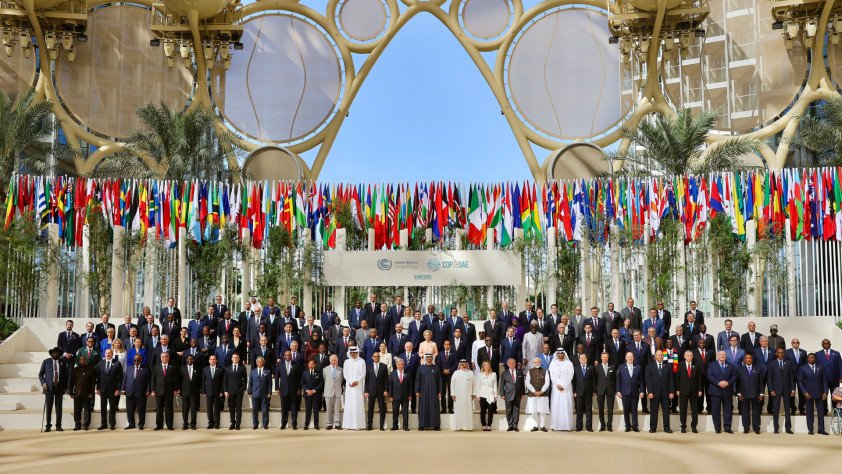Sustainability is no longer a choice but a necessity. As calls, expectations, and regulations to take climate action intensify, businesses face an uphill battle in accurately measuring and managing their carbon emissions.
This is not just a cliché but the on-the-ground experience we, at Olive Gaea, acquired first-hand when launching our initial sustainability services in 2022. And this is also what motivated us to develop ZERO, our cutting-edge carbon management and accounting SaaS platform that automates decarbonization.
While more and more companies pledge to achieve Net Zero targets, the stark reality is that 91% of organizations today find themselves unable to accurately measure their emissions in the very first place, let alone decarbonize.
The reasons behind this staggering statistic are manifold, with the primary hurdle lying in the painstaking and time-consuming process of data collection. The more complex the organization, the harder the task.
The extensive data gaps that result from unstructured or partial data collection, especially when it comes to scope 3 and supply chain emissions, lead to worrisome underestimations of corporate carbon footprints.
These data gaps and inaccurate measurements have profound implications for the development of effective and science-based net-zero strategies. Cascading consequences range from reputational risks, including greenwashing accusations, to legal liabilities, on the backdrop of disgracefully insufficient climate change mitigation action.
At Olive Gaea we witnessed first-hand that the corporate hurdle can extend way beyond the data collection process: once all needed inputs are gathered, businesses often face the complexity of identifying and applying the right emission factors, as well as developing emission projections that support sound decision making in terms of decarbonization opportunities, investments, timelines, and resources needed.
To sum up our experience working with reputable clients across diverse industries in the UAE, Saudi Arabia, and India, we identified critical challenges in traditional greenhouse gas (GHG) assessment and Net Zero road mapping hindering the effectiveness of carbon management and Net Zero plans:
- Data Collection Gaps: Incomplete or inconsistent data sets across all scopes of emissions often pose a significant obstacle to accurate GHG assessments and comprehensive Net Zero roadmapping.
- Data Management: The sheer volume of data generated from various sources poses a significant hurdle in extracting actionable insights. The intricate nature of this process can lead to delays in decision-making and affect the ability to derive strategic value from the data collected.
- Time Constraints: Extensive resources are often devoted to data collection, consuming valuable time and hindering the efficiency of the entire process. The time-intensive nature of this stage results in frequent delays and added operational costs.
- Personnel Training and Formation: The complexity of the GHG assessment and Net Zero roadmapping process is further exacerbated when personnel are not trained or formed. This skill gap introduces an additional layer of complexity and negatively affects the execution of sustainability strategies.
- Project Management Challenges: Coordinating between departments, offices, and facilities poses significant challenges. Project management complexities are magnified, leading to difficulties in aligning efforts and ensuring a cohesive approach towards sustainability goals.
- Static Insights: Traditional methodologies provide a static picture of emissions over a year, lacking the dynamic insights necessary for rapid and timely decision-making. This limitation hinders the agility required to adapt to changing circumstances and make informed decisions promptly in a volatile and unpredictable world.
Our realization of these criticalities inspired the development of ZERO by Olive Gaea, a comprehensive carbon management platform designed to address and overcome these exact challenges. ZERO not only streamlines data collection but also offers dynamic insights, ensuring that organizations can navigate the complexities of GHG assessments and Net Zero roadmapping with efficiency and precision.
We also integrated advanced analytics and streamlined data processing capabilities into ZERO by Olive Gaea, empowering organizations to not only manage large datasets efficiently but also extract valuable insights that drive informed, timely, and impactful decisions.
Addressing the specific needs of our clients, ZERO is our response to the urgent need for a solution to streamline the process of emissions measurement and management. Our platform is crafted to be user-friendly, promoting a collaborative approach to carbon accounting and reporting, while keeping individual tasks simple. By doing so, we aim to empower organizations, irrespective of their size, sector, or the technical knowledge of their personnel, to bridge the climate action gap effectively.
During the creation of ZERO, we paid special attention to supply chain management and tackling scope 3 emissions. These are often neglected or insufficiently addressed by current solutions, despite typically constituting more than 70% of an organization’s total carbon footprint.
That’s why ZERO by Olive Gaea features a dedicated module for Supply Chain Management. This includes an ABC analysis of supply chain emissions, offering a detailed breakdown to identify and prioritize areas for emission reduction. The Vendor Engagement and Supplier Sustainability Rating module further enhances supply chain sustainability, promoting responsible practices and accountability. This not only ensures accuracy in reporting but also facilitates the identification of potential mitigation strategies within the supply chain.
ZERO by Olive Gaea is an industry-agnostic carbon management platform, but it also boasts a robust suite of modules tailored specifically for the BFSI (Banking, Financial Services, and Insurance) sector.
Our platform is equipped with Financed Emissions Analytics, providing insights into WACI (Weighted Average Carbon Intensity), Portfolio Carbon Intensity, and Sectorial Analytics. This empowers BFSI professionals with comprehensive data to make informed decisions on their carbon footprint and investments.
ZERO goes beyond mere analysis; it facilitates decarbonization through portfolio optimization, ensuring that financial portfolios align with sustainability goals. The Engagement Module for investees fosters collaboration and sustainability initiatives, creating a holistic approach to responsible investment practices.
With a vast data set covering over 25,000 listed and private entities, along with a comprehensive repository of local and global emission factors exceeding 20,000, ZERO ensures unparalleled accuracy in emissions measurement and management in line with the GHG Protocol, PCAF, SBTi, and CDP.
The development of ZERO reflects Olive Gaea’s commitment to facilitating a smoother transition towards Net Zero for businesses in the MENATI region and worldwide. Our mission is clear: enabling organizations to take decisive climate action and achieve Net Zero by simplifying and automating decarbonization.
As we witness the increasing urgency of climate action, ZERO stands as a testament to our dedication to driving change. In a world where every action counts, Olive Gaea proudly presents ZERO – bridging the climate action gap one organization at a time.

